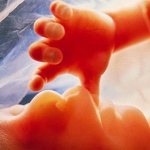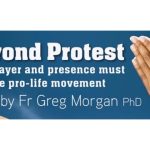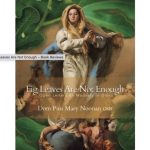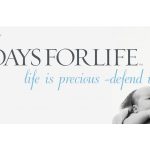Written by Most Rev. Julian Porteous DD, Archbishop of Hobart
Pastoral Letter
Published 30th May 2024
“Archbishop Julian Porteous, patron of FLI, released this Pastoral Letter to his Archdiocese in early May. While the letter merely reiterates Catholic teaching in a number of areas and expresses concern over attacks on religious freedom, some gay-lobbyists and parents have lambasted it for “homophobia” and “discrimination.” We present the letter below in its entirety to show our support for Archbishop Porteous and to expose the errors of his detractors.”
My Brothers and Sisters in Christ,
Our Catholic faith centres on the person of Jesus Christ. His death and resurrection have transformed the meaning and purpose of every human life. Our faith not only gives direction and inspiration to how we should live, but also gives us a clear understanding of the nature of being human.
As people of faith we seek to develop our understanding of who we are as human beings by looking to what the Sacred Scriptures reveal and to this we apply our human reasoning. This is the Catholic way.
Our Catholic intellectual tradition sees faith and reason working in harmony with each other.
Revelation offered in Sacred Scripture provides us with a clear picture of our identity as human beings. The fact that each of us are individually created by an act of God enables us to see that we are personally loved by God. It teaches us that we are a unity of body and soul, that we are not just material but spiritual beings and that we have an eternal destiny.
Our dignity as human beings
Recently the Dicastery for the Doctrine of the Faith produced a “Declaration on Human Dignity”. It described our dignity as ‘ontological’, that is, it pertains to our very being. Our dignity is not something earned or bestowed by others. It is a given. Thus, “the vulnerable, the most insignificant, the outcast, the oppressed, the discarded, the poor, the marginalised, the unlearned, the sick and those downtrodden” all possess this dignity.
A Catholic understands that they are created in love, redeemed by the sacrifice of Christ, and offered eternal life with God in heaven. We have an extraordinary dignity as human beings. From this flows some important beliefs which can differentiate our understanding of what it means to be human from many in our society today.
From the outset because we believe that God has revealed the truth about the human person, we attest to the fact that truth is objective and verifiable. We do not accept the postmodern view that truth is subjective, that reality is a merely political construction and morality is meaningless. Such a view, so prevalent in our society, attacks the very foundations of our society specifically the belief in objective morality which itself has provided the basis of our system of law. So many today believe that there is no authority beyond the self. We believe, however, as Jesus himself taught, “You will know the truth, and the truth will set you free” (Jn 8:23).
We believe that there is a moral truth which is the source of genuine human flourishing. God revealed the core teachings of the moral law in Ten Commandments given to Moses. It is this objective moral law that teaches us, “You shall not kill”, that every human life is to be protected from the moment of conception to its natural end. Thus, we see abortion and euthanasia as opposed to God’s law, and we stand up in defence of every human life.
Believing in God as creator we see our identity as male and female as a gift. Thus, we see efforts to disconnect gender from biological sex as denying the reality of who we are and the precious identity we have as a man or a woman.
God created male and female as sexually complementary. This means that, sexually speaking, we have literally been made for the opposite sex. He intended that man and woman would be drawn to each other, desire a life-long union in marriage, and so provide a stable and loving environment for the generation and nurturing of children. Thus, the Church seeks to promote the indissolubility of marriage and discourages couples from living together outside the marriage covenant.
These well-known Catholic teachings are now the subject of rejection by many within our society, and we are experiencing efforts to curtail our freedom to live by and teach these essential truths about the nature of human life.
God’s own people
When God was forming the People of Israel as his own people during their time in the desert after fleeing Egypt, he called them to be different from the nations around them. The books of the Law in the Old Testament called the people to see that they are first and foremost God’s own people and called to be holy, as God is holy (Lev 19:2). As God’s own people they were to live differently to the peoples around them. We read in the Book of Leviticus, for instance, the Lord commanding: “You must not behave as they do in Egypt where you once lived; you must not behave as they do in Canaan where I am taking you” (Lev 18:3).
Similarly, St Peter urged the first Christians to see their special dignity as God’s own people when he taught, “But you are a chosen race, a royal priesthood, a consecrated nation, a people set apart to sing the praises of God who called you out of darkness into his wonderful light” (1 Pet 2:9).
We are familiar with the adage that Christians are to live in the world but not be of the world. Only in this way can we be ‘salt to the earth’, as Jesus expects of us (See Mt 5:13). In fact, Jesus warns us, that if salt loses its flavour it is good for nothing.
As our society sheds its Christian past, we find ourselves becoming more and more out of step with the society around us. There is constant pressure on us to conform with the way our society is moving. We are challenged as to why we do not accept what is now viewed as the reasonable and acceptable behaviour. But we cannot. We are different. We are God’s own people.
Imposition of ideology by legislation
What we are now witnessing in our Australian society is the imposition of certain ideological positions on social and moral questions by means of legislation.
We have witnessed the liberalisation of abortion laws which now permit killing of the unborn up to full term, and the introduction of euthanasia laws which allow the taking of one’s life by ingesting a poison. At the same time laws are being passed in order to prevent objection to these measures against life. For example, prayer outside abortion clinics has been outlawed in many states. Pressure is being applied to Catholic hospitals to provide procedures which procure an abortion and allow euthanasia and assisted suicide.
Over the last 30-40 years we have witnessed an organised campaign to overturn the traditional Christian understanding of sex and sexuality in western society. This activist work culminated in the 2017 change to the legal definition of marriage to allow same sex couples to marry, following a public plebiscite.
Since this time we have seen the growth in what has been referred to as the ‘woke’ movement, seeking to overturn other traditional values and beliefs. This has included the push for ‘diversity and inclusivity’ training in the corporate sector and the attack on the biological reality of being male or female through a radicalised transgender lobby.
So called ‘Conversion Therapy’ laws have been introduced in some states which would penalise parents for counselling their children to fully embrace their biological sex. In Victoria a priest can be legally sanctioned for praying with someone about their sexual identity and the decision they make. These are gross violations of basic human rights.
Proposed federal legislation such as the ‘Misinformation and Disinformation Bill 2023’ offers further concern. Far from simply preventing the publication of false material, such legislation would threaten the very freedoms that are at the foundation of our way of life. It is not impossible in the coming years that the very expression of Catholic belief on certain matters could be essentially made illegal.
Slowly but surely our freedoms are being undermined.
Protect our Catholic schools
We are also facing an existential threat to our Catholic schools. Currently protections exist in the commonwealth Sex Discrimination Act (SDA) which allow faith-based schools to discriminate with regard to students and staff in order to maintain the integrity of their religious mission and purpose.
The Albanese Government is proposing to remove these protections contained in Section 38 of the SDA effectively leaving our schools with no legal protections to ensure mission alignment with regard to what is being witnessed to or taught in the school. The Religious Discrimination Act (RDA) that is being proposed by the Albanese Government to address the removal of this section does not provide any kind of similar protections. In fact, based on briefings I have received it allows for the possibility of a priest to have a complaint made against him for simply presenting Catholic teaching while preaching at a Sunday Mass.
We are accused in the media of wanting to ‘fire’ staff, or ‘discriminate’ against students who disagree with Catholic teaching. However, it is the case that no one is being forced to teach in or be a student at a Catholic school. It makes no sense for a person to seek to work for or enrol in a Catholic school if they disagree with the teaching of the Catholic Church. If they initially can accept the Catholicity of the school but later find that their personal views are at variance with those of the Catholic faith, then it would only make sense they should seek an alternative educational institution more aligned with their views.
For some time now we have requested the government to develop religious freedom legislation that will enshrine freedom of religion as a positive right, in line with a number of international declarations like the Universal Declaration on Human Rights. Yet the proposed draft of the RDA does not do this.
We call on the Prime Minister to develop legislation that presents religious freedom in such a manner that will ensure that we are free to be who we are as people of faith. This legislation also needs to have a ‘state override’ provision to ensure that all Australians have the same consistent legal protection for the expression of their religious belief regardless of the state in which they live.
Enough is enough
As the Church we cannot stand by as we experience our freedoms being taken from us. The time has come to take a clear stand and say, “enough is enough”. We do this not just for our own sake, but because we believe that Christian teaching is true and offers the only way for individuals, families and societies to fully flourish.
The Lord looked to his disciples to be salt to the earth. We are meant to have a positive contributing role in maintaining the health of our societies, preserving and flavouring them. We want to contribute to the wellbeing of the societies in which we live and to do this we must be free to be who we are and witness to the truth revealed by God and confirmed by human reason.










